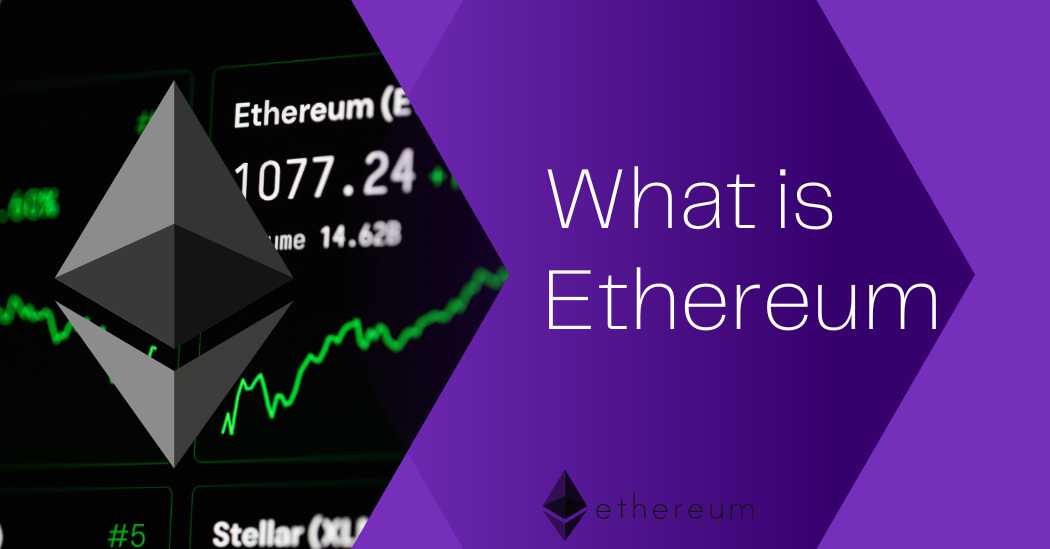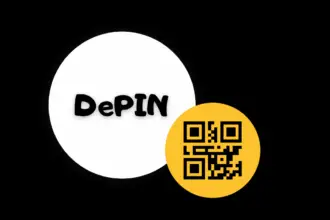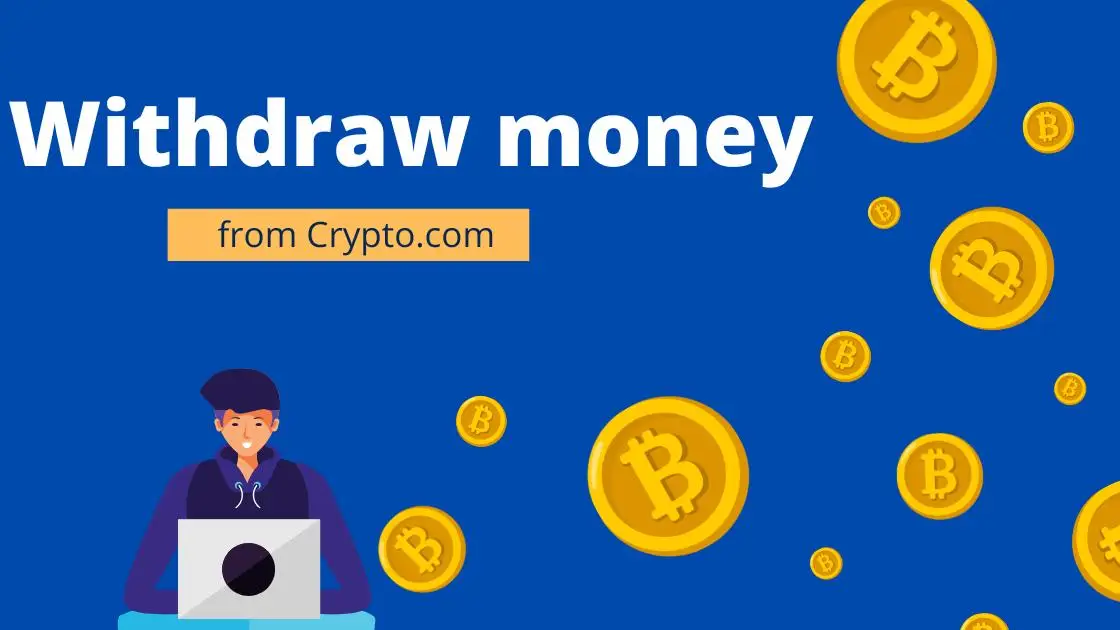Introduction:
Welcome to the exciting world of Ethereum! In this comprehensive guide for beginners, we will delve into the fundamentals of Ethereum, a decentralized blockchain platform that has revolutionized the world of cryptocurrencies and smart contracts. Whether you’re new to the concept of Ethereum or seeking a deeper understanding, this guide will equip you with the knowledge you need to navigate this groundbreaking technology. So, let’s get started with the question: What is Ethereum? A Guide For Beginners.

What is Ethereum? A Guide For Beginners.
Ethereum is an open-source blockchain platform that enables developers to build and deploy decentralized applications (DApps). It was proposed by Vitalik Buterin in late 2013 and launched in 2015. Ethereum introduced the concept of smart contracts, which are self-executing contracts with the terms of the agreement directly written into code. These smart contracts run on the Ethereum Virtual Machine (EVM), a runtime environment that executes the code.
The Origin of Ethereum
The idea of Ethereum originated from the limitations of Bitcoin. While Bitcoin provided a decentralized digital currency, it lacked the ability to execute programmable agreements. Vitalik Buterin recognized this limitation and proposed a platform that would allow developers to create and deploy smart contracts, thus giving birth to Ethereum.
The Difference between Ethereum and Bitcoin
While both Ethereum and Bitcoin are based on blockchain technology, they serve different purposes. Bitcoin is primarily a digital currency, whereas Ethereum is a platform for building decentralized applications. Bitcoin’s scripting language is limited, allowing for simple transactions, while Ethereum’s Turing-complete programming language enables the creation of complex smart contracts.
How Does Ethereum Work?
Ethereum operates on a decentralized network of computers called nodes. These nodes maintain a copy of the Ethereum blockchain, ensuring the security and integrity of the network. When a user initiates a transaction or executes a smart contract, it is broadcasted to the network and validated by multiple nodes through a consensus mechanism.
Ethereum Virtual Machine (EVM)
The Ethereum Virtual Machine (EVM) is a runtime environment that executes smart contracts on the Ethereum network. It provides a sandboxed environment where code is executed securely and deterministically. The EVM is responsible for processing transactions, updating the state of the Ethereum blockchain, and executing smart contract code.
Ether (ETH): The Cryptocurrency of Ethereum
Ether (ETH) is the native cryptocurrency of the Ethereum platform. It is used to incentivize miners to secure the network and execute smart contracts. Ether can also be used as a medium of exchange, store of value, or investment asset. It is commonly traded on cryptocurrency exchanges and stored in Ethereum wallets.
Understanding Smart Contracts

Smart contracts are self-executing contracts with the terms of the agreement directly written into code. They automatically enforce the agreed-upon rules and execute actions when predefined conditions are met. Smart contracts eliminate the need for intermediaries, increase transparency, and ensure trust in a decentralized manner.
Advantages of Smart Contracts on Ethereum
Smart contracts on Ethereum offer numerous advantages. They are immutable, meaning they cannot be altered once deployed. They also eliminate the need for intermediaries, reducing costs and increasing efficiency. Additionally, smart contracts can facilitate complex transactions, automate processes, and enable the creation of decentralized applications.
Solidity: The Programming Language for Smart Contracts
Solidity is the most popular programming language for writing smart contracts on the Ethereum platform. It is a statically-typed language that allows developers to define the behavior of smart contracts and interact with other contracts and the Ethereum blockchain. Solidity is designed to be secure, expressive, and efficient for developing decentralized applications.
Exploring Decentralized Applications
Decentralized applications (DApps) are applications that run on a decentralized network, such as Ethereum. Unlike traditional applications, DApps are not controlled by a central authority and do not rely on a single server. They leverage the blockchain’s transparency, security, and immutability to provide innovative solutions across various industries.
Examples of Popular DApps on Ethereum
Ethereum has been a breeding ground for innovative DApps. Some popular examples include:
- CryptoKitties: A game that allows users to collect, breed, and trade virtual cats using blockchain technology.
- Uniswap: A decentralized exchange that enables users to trade cryptocurrencies directly from their wallets.
- MakerDAO: A decentralized lending platform that allows users to borrow and lend cryptocurrencies using collateralized debt positions (CDPs).
The Impact of DApps on Various Industries
Decentralized applications have the potential to disrupt traditional industries. They can enable transparent supply chain management, facilitate peer-to-peer lending and borrowing, revolutionize the gaming industry, streamline identity verification processes, and much more. The versatility and innovation of DApps on Ethereum continue to expand the boundaries of technology.
Introduction to Ethereum 2.0

Ethereum 2.0, also known as Eth2 or Serenity, is an upgrade to the existing Ethereum network aimed at addressing scalability and efficiency issues. It introduces a new consensus mechanism called Proof of Stake (PoS) and implements shard chains to process transactions in parallel, significantly increasing the network’s capacity.
Proof of Stake (PoS) vs. Proof of Work (PoW)
Proof of Stake (PoS) is a consensus mechanism that allows participants to create and validate new blocks based on the number of coins they hold and “stake” in the network. It eliminates the need for miners to solve complex mathematical problems as in Proof of Work (PoW). PoS is more energy-efficient and reduces the risks of centralization.
Benefits and Challenges of Ethereum 2.0
Ethereum 2.0 brings several benefits to the network, including increased scalability, reduced energy consumption, and improved security. The introduction of shard chains allows for parallel processing of transactions, significantly increasing the network’s capacity. However, the transition to Ethereum 2.0 poses technical challenges and requires a careful migration plan to ensure a seamless upgrade.
Buying and Storing Ether (ETH)
If you’re interested in owning Ether, you can buy it on various cryptocurrency exchanges using fiat currency or other cryptocurrencies. Once purchased, it’s essential to store your Ether securely in an Ethereum wallet. Wallets can be hardware devices, software applications, or online services that enable you to manage and access your Ether holdings.
Understanding Ethereum Wallets
Ethereum wallets are used to store, manage, and interact with Ether and other Ethereum-based tokens. They provide a user-friendly interface to send and receive transactions, access DApps, and securely store private keys. Popular Ethereum wallet options include MetaMask, MyEtherWallet, Ledger Nano S, and Trezor.
Risks and Considerations for Ethereum Investors
As with any investment, it’s crucial to understand the risks associated with investing in Ethereum. The price of Ether is subject to market volatility, and there is a risk of loss. Additionally, security threats, regulatory changes, and scalability challenges may impact the value and adoption of Ethereum. It’s advisable to conduct thorough research and consider your risk tolerance before investing.
What is Ethereum Mining?

Ethereum mining is the process of validating and adding new transactions to the Ethereum blockchain. Miners use powerful computers to solve complex mathematical problems, known as “hashing,” and are rewarded with Ether for their computational efforts. Mining plays a crucial role in securing the network and maintaining its decentralized nature.
Mining Pools and Equipment
Mining Ethereum individually can be challenging due to the increasing computational power required. Mining pools allow miners to combine their resources and increase their chances of earning rewards. Specialized mining equipment, such as graphics processing units (GPUs), is commonly used for Ethereum mining due to its high computational power and efficiency.
Is Ethereum Mining Profitable?
The profitability of Ethereum mining depends on various factors, including the price of Ether, the cost of electricity, mining equipment efficiency, and network difficulty. As mining becomes more competitive, it may require significant investments in hardware and electricity costs. It’s important to carefully calculate the potential profitability and consider market conditions before venturing into mining.
The DAO Hack: A Lesson Learned
The DAO (Decentralized Autonomous Organization) was a pioneering project built on the Ethereum blockchain. However, in 2016, a vulnerability in the DAO’s smart contract code was exploited, resulting in the theft of a significant amount of Ether. This incident highlighted the importance of security audits, rigorous testing, and ongoing community involvement in ensuring the safety of decentralized applications.
Scalability Issues and Solutions
Scalability has been a challenge for Ethereum, as the network’s capacity to process transactions is limited. To address this issue, Ethereum 2.0 introduces shard chains, which will allow for parallel processing of transactions. Layer 2 solutions, such as state channels and sidechains, also aim to alleviate scalability constraints by conducting transactions off the main Ethereum chain.
Security Best Practices for Ethereum Users
To ensure the security of your Ethereum holdings and transactions, it’s crucial to follow security best practices. These include using reputable wallets, enabling two-factor authentication, keeping the software and firmware up to date, verifying smart contract code before interacting with it, and being cautious of phishing attempts and suspicious links.
Ethereum vs. Bitcoin: The Key Differences

While Ethereum and Bitcoin are both based on blockchain technology, they have distinct differences. Bitcoin primarily functions as a digital currency, aiming to replace traditional financial systems. Ethereum, on the other hand, is a versatile platform that enables the development of decentralized applications and the execution of smart contracts.
Ethereum vs. Ripple: A Comparison
Ethereum and Ripple (XRP) serve different purposes in the blockchain landscape. Ethereum focuses on smart contracts and decentralized applications, while Ripple aims to facilitate fast and low-cost international money transfers. Ethereum is a public blockchain, while Ripple operates on a more centralized network with trusted validators.
Ethereum vs. Cardano: Which is Better?
Ethereum and Cardano are both platforms for building decentralized applications, but they have different approaches. Ethereum currently operates on a Proof of Work (PoW) consensus mechanism, while Cardano uses a Proof of Stake (PoS) approach. Cardano aims to provide scalability, sustainability, and formal verification of smart contracts, positioning itself as a potential competitor to Ethereum.
Frequently Asked Questions (FAQs)
Can I mine Ethereum with my personal computer?
Mining Ethereum with a personal computer can be challenging due to the increasing computational power required. Specialized mining equipment, such as GPUs, is typically more suitable for Ethereum mining.
How can I create a smart contract on Ethereum?
To create a smart contract on Ethereum, you need to write the contract code using a programming language like Solidity. Once written, you can deploy the contract on the Ethereum network using tools like Remix or Truffle.
Is Ethereum a good investment?
Investing in Ethereum carries risks, as with any investment. However, Ethereum's innovative technology, large developer community, and potential for growth make it an attractive investment option for many.
What are some popular DApps built on Ethereum?
Some popular DApps built on Ethereum include decentralized exchanges like Uniswap, blockchain games like Axie Infinity, and lending platforms like Aave.
How can I ensure the security of my Ethereum wallet?
To ensure the security of your Ethereum wallet, use reputable wallet providers, enable two-factor authentication, keep your software up to date, and be cautious of phishing attempts or suspicious links.
Conclusion
In conclusion, Ethereum has revolutionized the blockchain industry by introducing smart contracts and enabling the development of decentralized applications. Its versatile platform and robust ecosystem have paved the way for innovation and disruption across various sectors. Whether you’re interested in understanding the fundamentals of Ethereum, exploring decentralized applications, or considering investment opportunities, this guide has provided you with a comprehensive overview to get started on your journey into the world of Ethereum.









